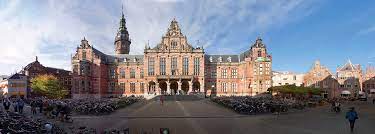University of Groningen: Grant for VR headset teaching children about climate change in polar region
Dr Maarten Loonen, associate professor of Arctic Ecology at the Faculty of Arts, has been awarded a grant for science communication from the Dutch National Research Agenda (NWA). The grant worth €45,000 will make it possible to provide primary schools taking part in the Arctic Explorer lesson programme with a virtual reality headset, through which children can watch 360-degree videos of the polar region. The lesson programme on climate change is intended for children in the upper years of primary school.
Climate change is a problem that is difficult to communicate. It is taking place over a long timespan, it is complex, and it is often only visible at distant locations like the polar region. Still, climate change has a major impact on the Netherlands and is a very current topic in the classroom.
On expedition in the polar region
The Arctic Explorer lesson programme gives children the opportunity to do their own research into climate change. Through the VR headset and the 360-degree videos, pupils can embark on their own expedition in the polar region. They can see with their own eyes what is happening to the ice, to the glaciers, and to the animals there right at this moment, and they can discover what they can do to save this beautiful region. The videos are part of a lesson programme on climate change. Through a series of lessons, children learn about the topics of expedition and research, animals, ice, climate and coldness, and climate actions in their own environment.
Scientific expedition
The images for the 360-degree videos were taken on Spitsbergen during the SEES expedition that took place in the summer of 2022 under the leadership of Maarten Loonen. During the scientific expedition, interdisciplinary research was carried out into the influences of climate change on and around the island of Edgeøya, Svalbard. This island, in the middle of the Arctic, is being heavily impacted by the rising temperatures as a result of climate change. Polar researcher Loonen has been conducting research on Spitsbergen for over 30 years, into the behaviour of migratory birds and changes in their breeding grounds.
About Arctic Explorer
Thanks to the Dutch National Research Agenda grant, 10,000 children in the Netherlands will be able to follow the Arctic Explorer lesson programme in the 2022-23 school year. This lesson programme was made by the foundation Arctic Explorer, which is committed to climate education in the Netherlands. To develop the lesson programme, the foundation worked closely together with partners including publishers Malmberg & Prowise, educational supplier Heutink, communication specialists Emotion, and content specialists WWF and the University of Groningen’s Arctic Centre. For more information about the lesson programme, visit the Arctic Explorer website.
About the DSA
The Dutch National Research Agenda (in Dutch: National Wetenschapsagenda) is a programme run by the Ministry of Education, Culture and Science focused on collaborating towards wellbeing and prosperity in the Netherlands, both now and in the future. Science communication and outreach is a part of the DSA, with the goal of making Dutch citizens aware of the importance of science in our daily lives.

